Reflection on The Best Practice Guidelines For Lipoedema Published by Wounds UK
The publication was co-ordinated by Wounds UK and an Expert Working Group made up of dedicated healthcare professionals and Lipoedema sufferers and was supported by Activa Healthcare, BSN Medical, Haddenham Healthcare, Lipoedema UK, medi UK, Sigvaris and Talk Lipoedema. To mark Lipoedema Awareness Month, PhysioPod asked four of those involved just what the document and their participation meant to them personally.
Download Guidelines from www.wounds-uk.com
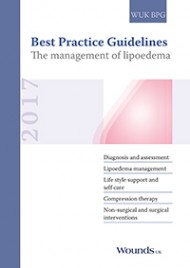
Wounds UK. Best Practice Guidelines: The Management of Lipoedema. London: Wounds UK, 2017.

Hand Drawn Image Copyrighted to Lipoedema UK
Reflection on The Lipoedema Best Practice Guidelines
Sharie Fetzer, Chair of Lipoedema UK pictured with Kris Jones, Patient; Joint Managing Director & Nurse Consultant, LymphCare UK; Nurse Consultant & Lipoedema UK member of the Expert Working Group
"Lipoedema is now firmly established on the medical map with the launch of the extremely comprehensive UK Best Practice Guidelines by Wounds UK. Thanks to sponsors Activa, BSN, Haddenham, Medi and Sigvaris, members of the Expert Working Group and reviewers Professor Peter Mortimer, Mr Alex Munnoch, Melanie Thomas, Rebecca Elwell and Dr Dirk Pilat of the Royal College of GPs, professionals involved in primary care now have the tools to diagnose lipoedema and a identify a patient pathway. Lipoedema UK are committed to bringing lipoedema to the attention all primary care practitioners so symptoms are identified as early as possible and patients advised on the best lifestyles and treatments to prevent the frustrations and despair so many women experience when they receive a diagnosis later in life. At Primary Care 2017 at the NEC in May, the Lipoedema UK team had the opportunity to bring the guidelines to the attention of numerous GPs, midwives, physiotherapists and other healthcare professionals who were previously totally ignorant of lipoedema but instantly recognised that they had patients they could now help. We even met a GP and several midwives who realised that they too had undiagnosed lipoedema!
The next few years will undoubtedly bring rapid advances in understanding the pathophysiology of lipoedema and the most effective treatment as the Guidelines become instrumental in increasing patient numbers and greater interest from all healthcare practitioners. There will be another milestone for all Lipoedema patients, both in the UK and internationally, when lipoedema achieves it’s own ICD code next year. The Best Practice Guidelines and access to the free RCGP elearning course on lipoedema are available to all UK HCPs via Lipoedema UK website.
Lipoedema UK and Physiquipe are holding half-day workshops in Manchester (Mr Vasu Karri, 13th July), and Derby (Dr Vaughan Keeley, 24th July) featuring the Best Practice Guidelines and treatments for lipoedema"
Lipoedema UK’s Conference & Workshop programme on 14th & 15th October, 2017 in Sheffield, will inspire patients of all ages and stages to beat lipoedema through diet, exercises - such as aqua and yoga - and mindfulness techniques. There will also be an opportunity to take part in St Georges hospital’s genetic research programme, Mr Vasu Karri will present on liposuction for lipoedema and Lipoedema UK’s Nurse Consultants will be sharing their expertise on compression garments.

Cheryl White, Lymphoedema Specialist Physiotherapist, Cheshire
"When I was approached to be a member of the Expert Working Group by some of my fellow Lymphoedema Specialist colleagues, I was truly honoured. I already had an interest in lipoedema but, unfortunately, the NHS service I worked in did not allow me to accept Lipoedema patients. Being approached allowed me to extend my interest in a positive and practical way. The anticipation of Best Practice Guidelines for Lipoedema was very exciting as I understood how much impact similar guidelines, such as those for Lymphoedema, had in the past.
It was truly inspirational to be sat in a room with expert clinicians and expert patients all working together. Individuals contributed in such a collaborative way that it was hard to believe that was the first, and what was to be the last time, the group met face to face. The culmination of that meeting produced an incredibly detailed, informative publication, outlying what we know about lipoedema, it’s epidemiology, pathophysiology, its treatment and management so far. We still have lots to learn and as time goes by, I am sure that this much-needed document will be edited and revised but it is an excellent start and an incredible achievement. One which I am proud to have been part of."
Dr Anne Williams, Lymphoedema/Lipoedema Nurse Consultant
Lecturer in Nursing, Queen Margaret University, Edinburgh
Trustee, Talk Lipoedema, Edinburgh
Co-Chair of the Expert Working Group
"I was delighted to co-chair the development of the Best Practice Guidelines for the Management of Lipoedema. It was a great experience to work with the publishing experts at Wounds UK, the other co-chair Denise Hardy, and the expert working group. The best practice guidelines were originally inspired by a group of clinicians in the UK whose discussions led to us working with Wounds UK. This enabled us to bring together an expert group of clinicians and people with lipoedema, representing Lipoedema UK and Talk Lipoedema, to steer the guideline development. We wanted to ensure that the guidelines were comprehensive, evidence-based, realistic and accessible to professionals and people with lipoedema. They cover epidemiology, pathophysiology, diagnosis and assessment, management principles, compression therapy, surgery and non-surgical options. We also included sections on psychosocial support and self-care, healthy eating and weight management, particularly recognising the need for effective emotional and psychological support for people living with lipoedema.
The guidelines are a first step to achieving better care, treatment and support for people with lipoedema who often feel ignored and rejected by healthcare services. We recognise that as research evidence develops, there will be real advances in our understanding of the pathophysiology of lipoedema, and the most effective ways of managing the condition. The guidelines will therefore be reviewed within three years." Dr Anne Williams

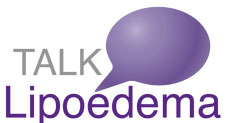
Angela McCarroll, Trustee, Talk Lipoedema; Patient, Northern Ireland
"As someone who has been diagnosed with lipoedema, it was an honour to be invited to become a member of the expert working group to help create The Best Practice Guideline on the management of lipoedema. I was diagnosed 10 years ago, at the age of 45, so I understand what it is like to live with lipoedema on a daily basis, the emotional distress caused by it and the experience of the many co-morbidities that come along with it. I am also involved in the lipoedema community. I volunteer with, and am a trustee of, Talk Lipoedema and I could relate to what so many women on our Facebook pages were posting. Each day, each hour varies emotionally; however, it is really important to work towards moments of self acceptance and grace (however fleeting). I've spent the last 10 years working hard to find things to help me with my journey I felt that I was in a good position to try and help others. I hoped to bring to the table the perspective of someone suffering from this condition, and in turn increase understanding, awareness and acceptance of lipoedema. After all lipoedema is a journey to self love!" Angela McCarroll
PhysioPod™ UK Ltd were delighted that DEEP OSCILLATION® was mentioned in the guidelines in Section 8 - Non surgical approaches in 'Other treatment modalities'
Electrostatic massage therapy (Deep Oscillation®) — therapy is applied to the skin in a massaging movement by a therapist via gloved hands while the patient holds a linked electrode; this creates an electrostatic effect in the tissues that is suggested may reduce pain and inflammation (Teo et al, 2016).
PhysioPod wish to thank all contributors to this article.
DEEP OSCILLATION® used to manage symptoms of Lipoedema please click here
Therapist and Patient Testimonials please click here
Lipographic of DEEP OSCILLATION® used post liposuction please click here
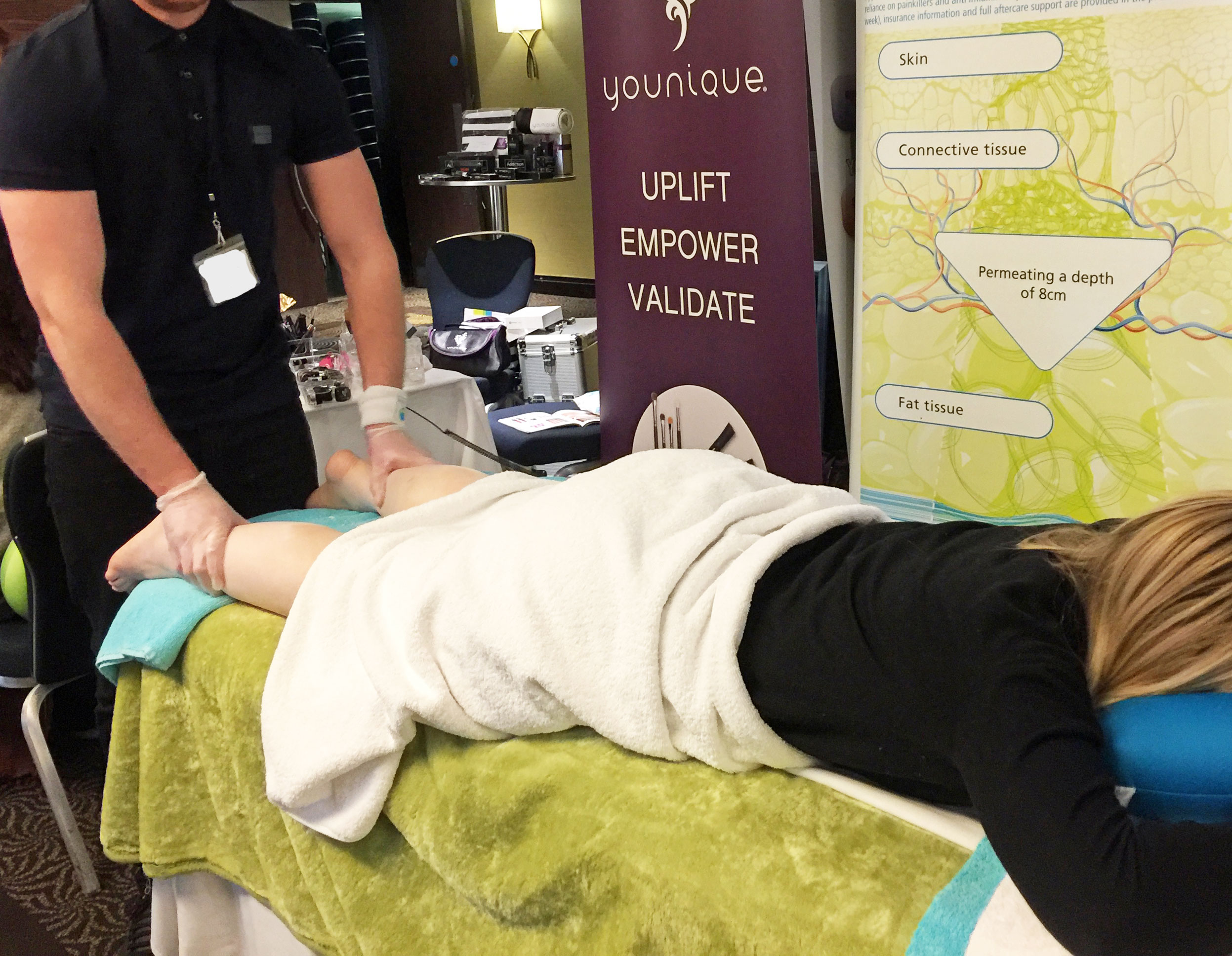
DEEP OSCILLATION® applied via gloved hands of partner, applicators also enable self management
Full patient review can be viewed here: Talk Lipoedema 2017 Spring Conference
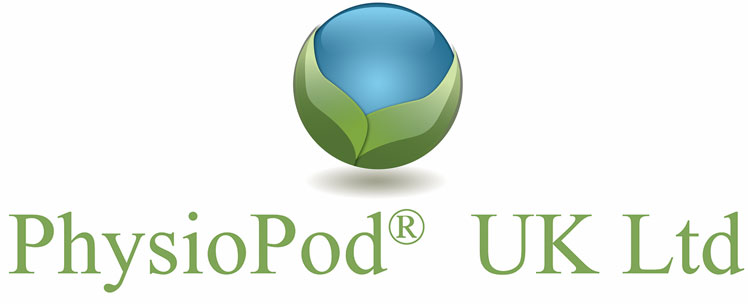
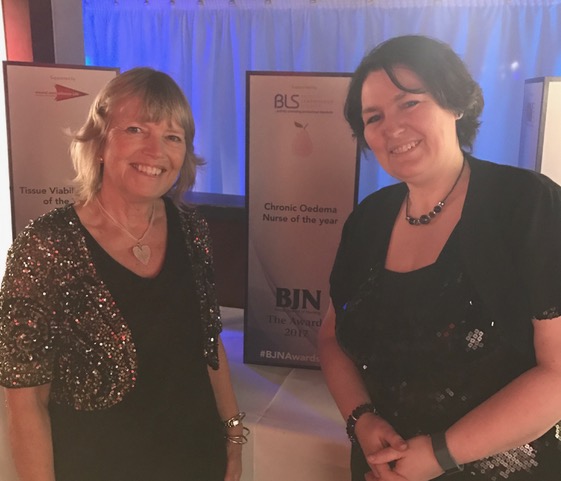
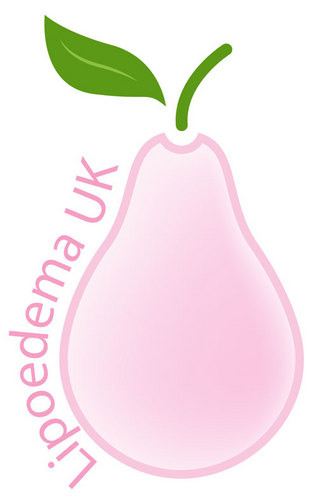
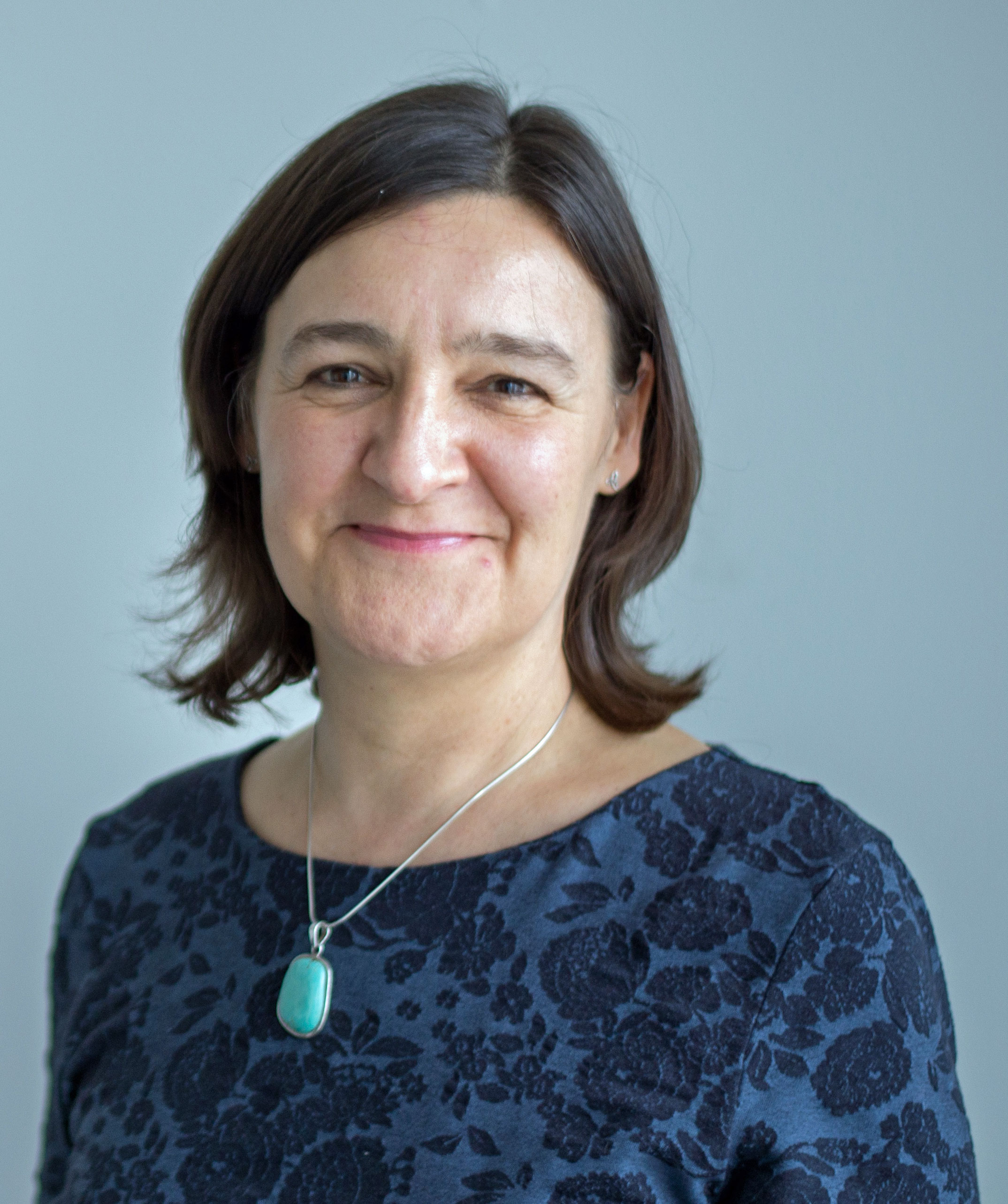
.jpg)
